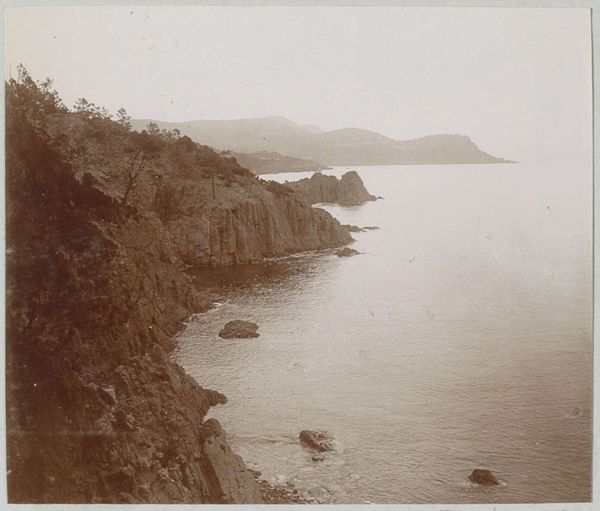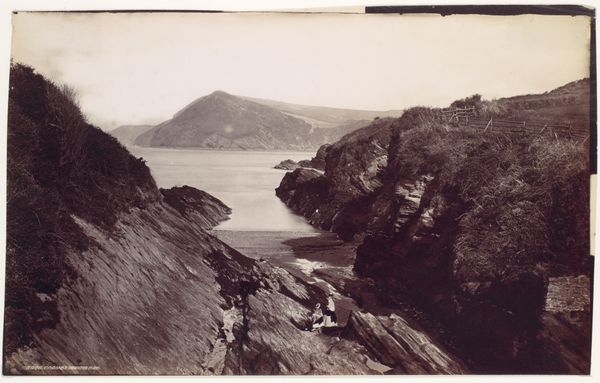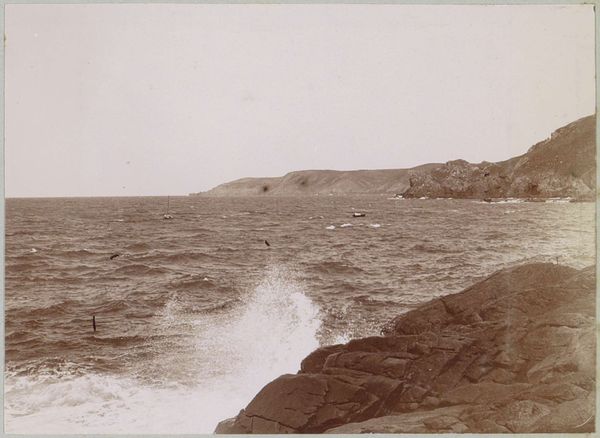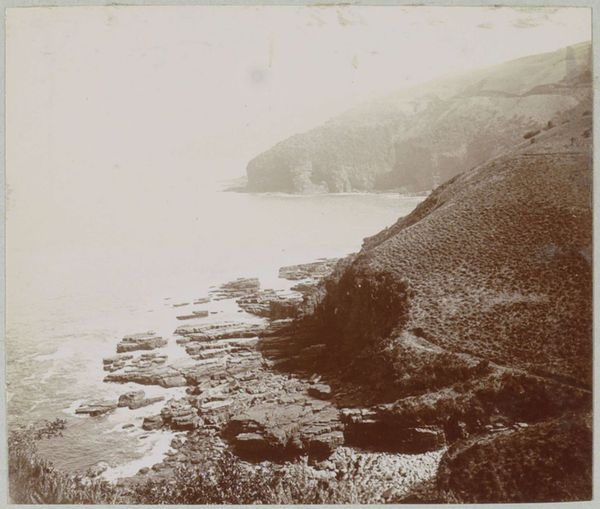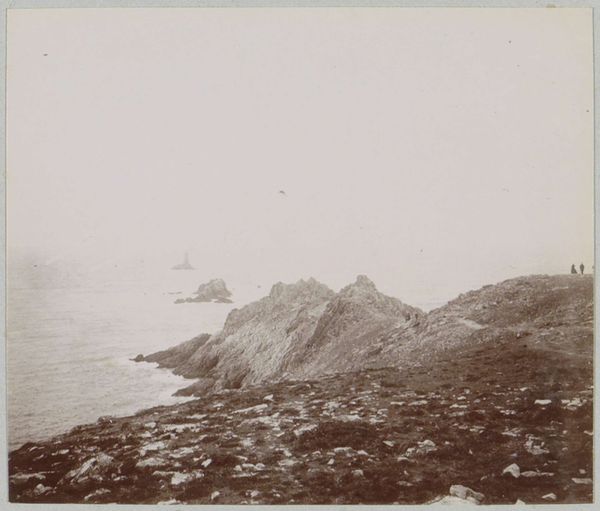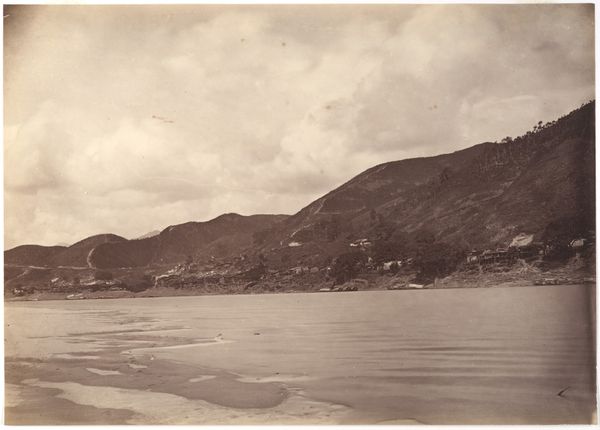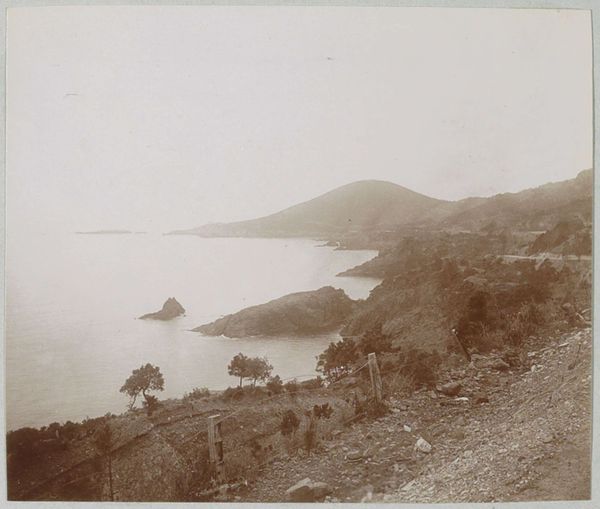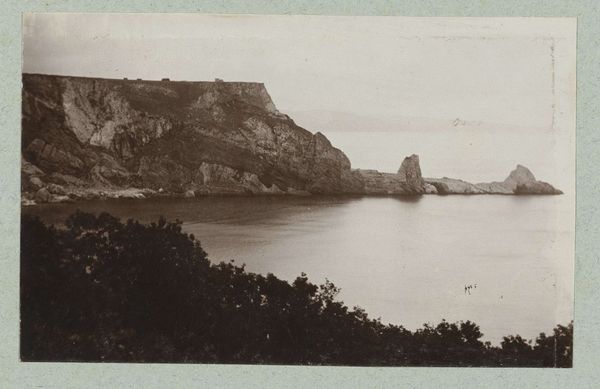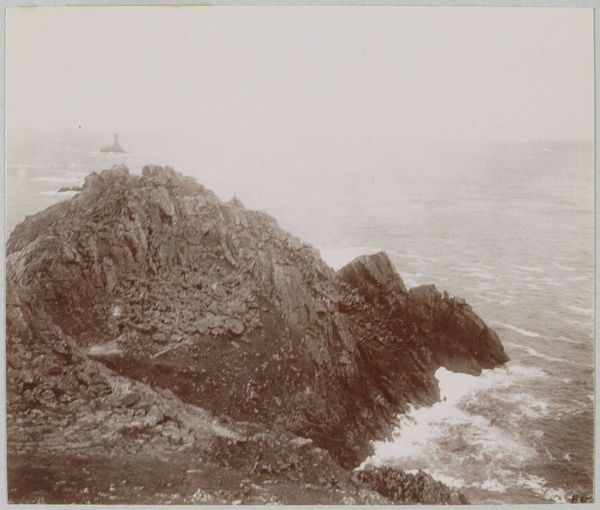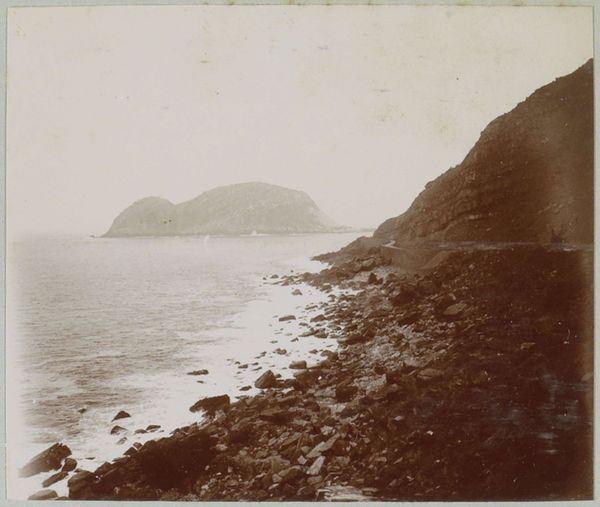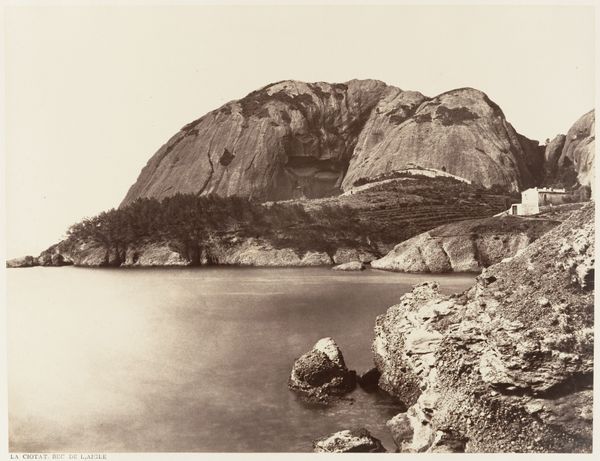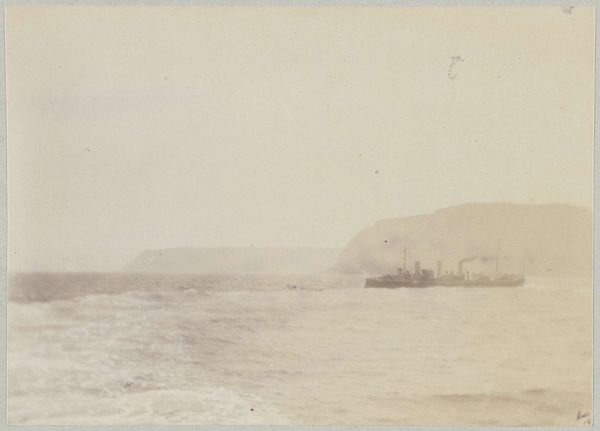
photography, gelatin-silver-print
#
pictorialism
#
landscape
#
photography
#
gelatin-silver-print
Dimensions: height 195 mm, width 239 mm
Copyright: Rijks Museum: Open Domain
Editor: We’re looking at "Cliff House aan de kust van San Francisco, gezien vanaf zee," a gelatin-silver print photograph, likely from between 1880 and 1900, by Isaiah West Taber. It's so serene; the soft gradation from dark water to light sky is striking. How do you read this image, focusing on its compositional elements? Curator: The image presents a compelling study in contrasts, achieved through carefully controlled tonal range. The solidity of the rocks anchors the foreground, juxtaposed with the subtle gradations in the water. Note how the artist frames the architectural elements atop the cliff against the diffused light of the sky. The photographer skillfully manipulates light to flatten the perspectival space, emphasizing the image's two-dimensionality. Does that flattening contribute to the serenity you observed initially? Editor: Yes, absolutely. It makes it feel almost like a painting, more about shapes and tones than a realistic depiction. Does the hazy quality relate to anything in particular regarding the technical aspects or the then-current aesthetic trends in photography? Curator: The diffused focus and limited tonal range align with the pictorialist movement that gained traction during this period, which favoured soft focus and emphasized the photographer's artistic manipulation. We see a conscious effort to move beyond simple replication and toward creating an emotional, expressive image. Pictorialists often used techniques like dodging and burning to achieve these effects in the darkroom. Consider how these techniques shape our viewing experience, moving us away from a straightforward representation of reality. Editor: It's fascinating how technique influences the overall effect! Seeing it through this formal lens gives me so much more to appreciate about this photograph. Curator: Precisely! By analyzing the formal elements and photographic processes, we understand how the artist aimed to create a mood. We moved from simply observing serenity to analyzing how it was constructed.
Comments
No comments
Be the first to comment and join the conversation on the ultimate creative platform.
